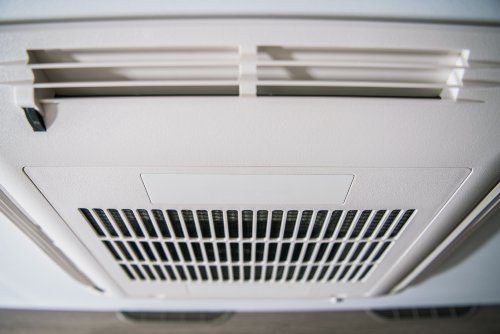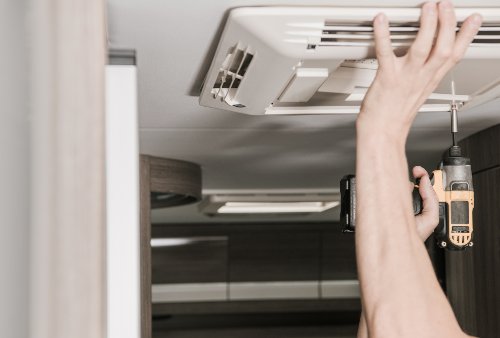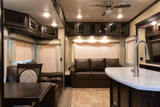Finding The Best RV AC Units For Your Rig
Finding the best RV AC units for your rig is a lot easier than it used to be. In the past, if you wanted air conditioning in your RV, you had to go out and buy a large and expensive window unit that would be difficult to install and even harder to use while you were driving down the road. Not only that, but most of these units cost in the $3,000 range. Thankfully, the days of the big and bulky RV air conditioners are long gone. Today, you have options for small and quiet RV AC units that are easier to install and much more affordable.
The Importance of Air Conditioning Systems
When it comes to equipment that is vital to your RV or camper, air conditioning systems may not be the first thing you think of. While you do not necessarily need an AC unit to use your rig, you may find that your enjoyment may be significantly hampered without one. This is especially true if you are traveling through or camping during warm spring and summer months or in warmer areas like Arizona or Texas.
When the outside world is warm and toasty, your RV or camper can act and feel like an oven, even if you have the windows open and fans blowing, especially if you are parked in the sun. After all, an RV or camper is, essentially, a big box full of air that can trap in heat. Handling high temperatures can be brutal at times, but RV air conditioning systems give you a much easier way to stay comfortable. You won't have to rely on fans and open windows, as RV AC units are designed specifically to draw in hot air and blow out cool, refreshing air.

Types of RV Air Conditioners
When it comes to ac units for RVs, there are generally two types: ducted and ductless. When trying to find the right AC for your rig, it is crucial to determine which type of AC would work best for your rig by considering the different challenges and parameters you may need to work with.
A ducted RV air conditioner is designed to match up with the air ducts of an RV and usually sits on the roof of the rig. The ducted AC unit can then push cool air throughout the ductwork and vents of the RV or camper, cooling off each room at once. This is similar to the typical air conditioning systems in most houses.
Ductless RV AC units are more flexible in where you can put them, with many acting as wall AC units. Ductless units push cool air through one or multiple attached vents, with the vents typically being adjustable. Ductless small AC units are fantastic for cooling off a single room but are not very good at cooling off an entire rig.
How To Choose The Right RV AC Units For Sale
An AC unit for your RV can be a big purchase, so it is vital to consider a few factors before you buy. As is almost always the case with a big purchase, the first thing you should consider is your budget and how much you are willing to spend. You wouldn't want to find a small air conditioner for your RV that you love, only to be pushed away by an overly hefty price tag.
Where should the A/C be placed?
 The location you intend to put the unit will play a significant factor in determining what kind of AC you choose. Do youwant the unit to cool off all of your rig while staying out of the way? Consider looking at RV roof AC units. Do you want to cool off a single room while letting in some fresh air? Take a look at some small window AC units for RVs.
The location you intend to put the unit will play a significant factor in determining what kind of AC you choose. Do youwant the unit to cool off all of your rig while staying out of the way? Consider looking at RV roof AC units. Do you want to cool off a single room while letting in some fresh air? Take a look at some small window AC units for RVs.
What size of A/C should you buy?
RV AC units come in many shapes and sizes, and it is important to consider the size of the unit you want. An oversized AC unit can look bulky and unpleasant and feel challenging to install, while a too-small unit may not fit where you need it to. Many RVers find a comfortable medium with low profile AC units for RVs, so consider checking a few of those out.
The Importance of Maintenance
Like any piece of equipment, the air conditioning systems on your RV need maintenance if you want it to continue working reliability and effectively. Suppose you do not regularly maintain and take care of your RV AC units. In that case, they may stop working as efficiently, taking up more power while producing less cool air and leaving you in an uncomfortably warm room. Or worse, your small air conditioner may stop working altogether, giving you no relief from the harsh heat of the summer. Make sure you look at your RV AC units often and perform any maintenance they may need.
How To Maintain an RV AC Unit

Maintaining your RV AC units is much easier than you may think and typically does not require dismantling the unit. Start out by inspecting the inside and outside of your RV AC units visually and look for any damage that could have been caused by wind and debris. While you are at it, keep your eye out for any leaks or water intrusions.
If you have any leaks, you may need to replace the sealants or tighten up the mounting. If your RV roof AC units are damaged, determine how bad the damage is and if you can fix it yourself or need to have a professional repair or replace it. Check the cooling fins of your RV air conditioning systems to ensure that they are straight. If you have any bent cooling fins, use a comb or a thin, dull piece of metal to GENTLY straighten the fins. Lastly, a soft starter for RV AC units is often a requirement, as it will allow your AC system to start up more gently than if it were plugged directly into the power. Above all, follow all maintenance and care tips your air conditioning systems manufacturer provides.
Enjoy The Cool Air
RV AC units come in various shapes and sizes, with a diverse range of different features offered from unit to unit. From low profile AC units for RVs to small window AC units, the perfect one for your rig is sure to be out there. As you shop for the one you want for your rig, consider taking a look at RecPro and some of our RV AC units.
Do you prefer ducted or ductless? Do you have a roof RV AC unit you love? What kind of features do you like to have on your RV air conditioning systems? We would love to hear about it, so let us know in the comments below!
Recent Posts
-
4 Tips for Securing RV Furniture While Traveling | RecPro
How To Secure RV Furniture There are few things that beat going out on an adventure with an RV …Apr 11th 2024 -
Can You Put Regular Furniture in an RV?
Can you put regular furniture in an RV? Many new and old RV owners ask themselves this qu …Apr 8th 2024 -
Are RV Electric Fireplaces Safe
Being Safe in Your RV with an Electric Fireplace Safety is always going to be one of your highest …Apr 4th 2024 -
How To Install An RV Fireplace
A Warm Addition to Your On-Wheels: The DIY RV Fireplace Installation Guide Many RV enthusiasts ask …Apr 1st 2024 -
Essential Grilling Gear Every RVer Needs
Whether or not you consider yourself a pitmaster or grillmaster, if you’re out on the road with y …Mar 18th 2024 -
Fun and Interesting Places to Visit That Aren’t a National Park
One of the big destinations when RVing is to go to National Parks. You want to get back to nature, h …Mar 4th 2024







